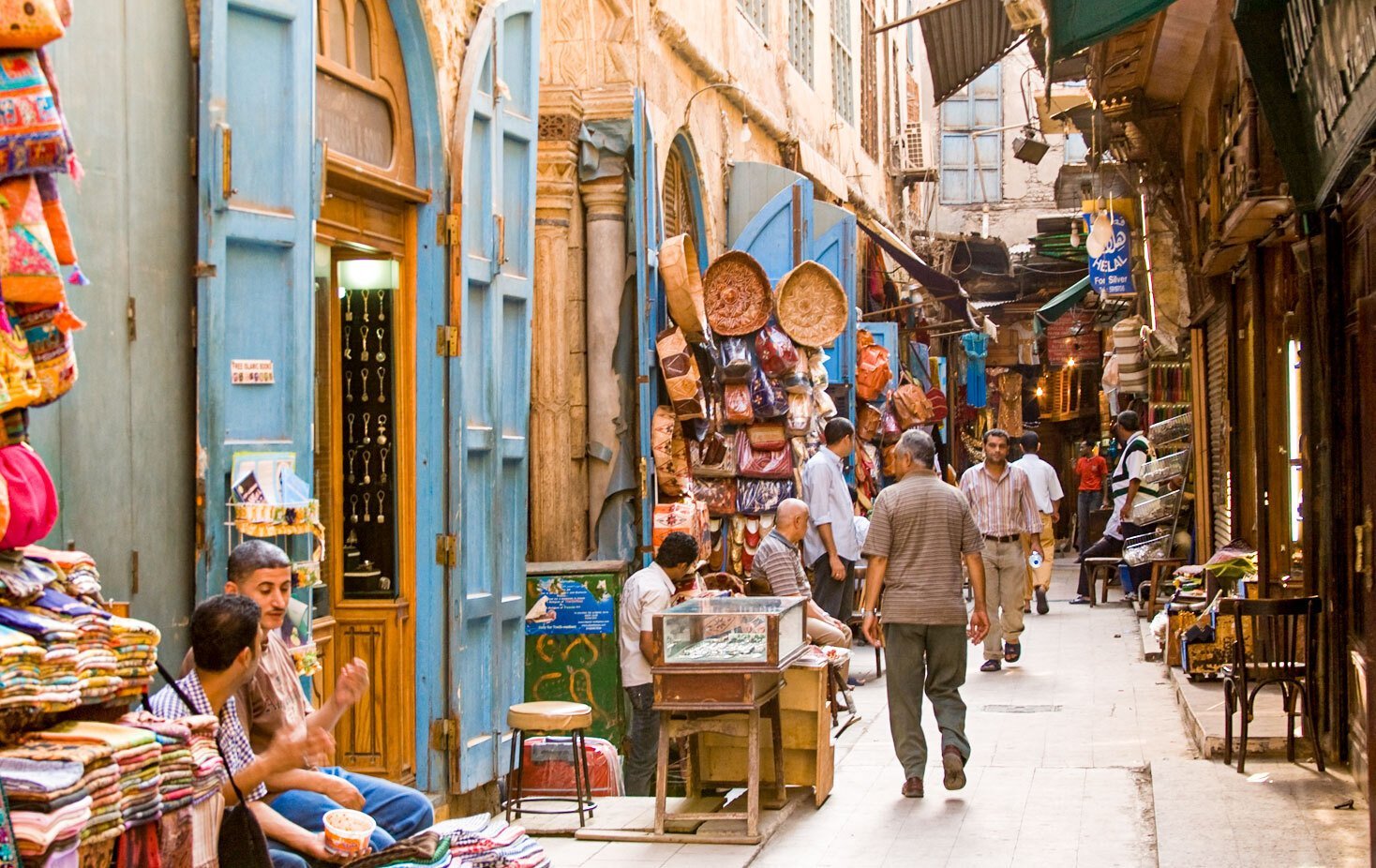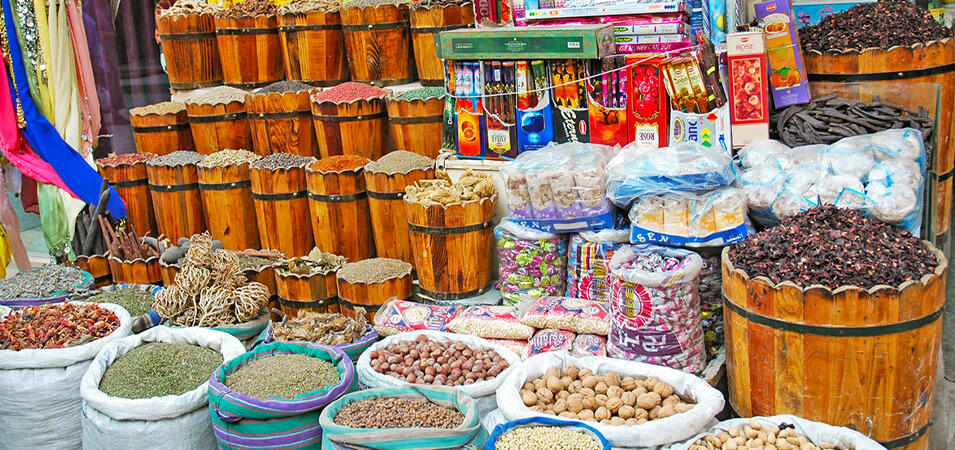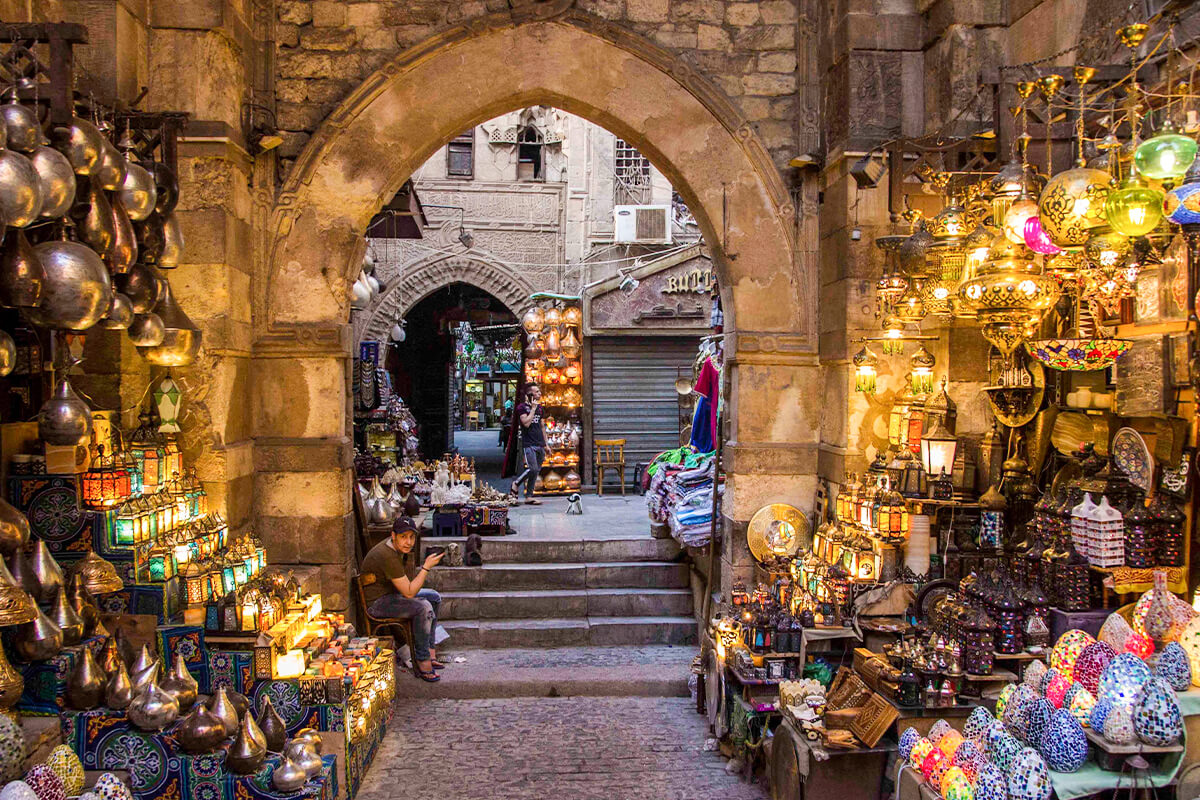Introduction
Cairo souks offer an intoxicating blend of ancient traditions and modern commerce that captivates every visitor. These vibrant marketplaces have thrived for over a thousand years, making them among the world’s oldest continuously operating commercial centers. Furthermore, Cairo souks represent the beating heart of Egyptian culture, where locals and travelers alike discover treasures ranging from handcrafted jewelry to aromatic spices.
The city’s most famous marketplace, Khan el-Khalili, draws millions of visitors annually. However, Cairo souks extend far beyond this tourist favorite. Moreover, each neighborhood hosts specialized markets that serve local communities while preserving centuries-old trading traditions.
From the bustling textile markets of Wekalet el-Balah to the aromatic spice vendors of Souk el-Attarine, Cairo souks provide endless opportunities for discovery. Additionally, these markets offer authentic cultural experiences that reveal the true character of Egyptian life.
This comprehensive guide explores the most remarkable Cairo souks, helping you navigate these labyrinthine marketplaces like a seasoned local. Furthermore, we’ll share insider tips for finding the best deals and authentic products while avoiding common tourist traps.
1. Khan el-Khalili: The Crown Jewel of Cairo Souks

A Thousand Years of Trading Heritage
Khan el-Khalili stands as the most celebrated among all Cairo souks. Founded in the 14th century by Prince Jarkas el-Khalili, this marketplace has witnessed the rise and fall of empires. Moreover, it continues to serve as Egypt’s premier destination for traditional crafts and souvenirs.
The market’s winding alleyways contain over 600 shops and workshops. Each narrow passage reveals new treasures, from glittering jewelry to hand-painted ceramics. Furthermore, the architectural details throughout Khan el-Khalili showcase Islamic design elements that have influenced Cairo souks for centuries.
What makes Khan el-Khalili unique among Cairo souks is its perfect preservation of medieval market architecture. Stone arches and wooden mashrabiya screens create an atmosphere unchanged since Mamluk times. Additionally, the market’s coffee houses have hosted famous writers, including Nobel laureate Naguib Mahfouz.
The main entrance near Al-Azhar Mosque provides the best starting point for exploring this jewel of Cairo souks. However, multiple entrances allow visitors to approach from different directions. Moreover, getting lost in the maze-like passages is part of the authentic experience.
The market divides into specialized sections, each focusing on specific products. The jewelry quarter sparkles with gold and silver pieces crafted by skilled artisans. Meanwhile, the textile section displays colorful fabrics that represent Egyptian and Middle Eastern weaving traditions.
Key areas to explore include:
- Gold and Silver Quarter: Home to Cairo’s finest jewelry craftsmen
- Spice Alley: Aromatic herbs and spices from across the region
- Textile Section: Traditional fabrics and modern Egyptian cotton
- Antique Shops: Rare collectibles and vintage Islamic art
- Tourist Bazaar: Souvenirs and gifts for international visitors
Shopping Strategies for Success
Bargaining remains essential when shopping in Khan el-Khalili and other Cairo souks. Start by offering 30-40% of the initial asking price. Furthermore, maintaining a friendly attitude while negotiating often leads to better deals and genuine connections with vendors.
The best shopping times are early morning or late afternoon when crowds thin out. Moreover, visiting during weekdays provides more opportunities for relaxed browsing and conversation with shopkeepers.
Always examine products carefully before purchasing. Many vendors sell both authentic handmade items and mass-produced replicas. Additionally, asking about the product’s origin and craftsmanship helps identify genuine pieces.
2. Souk el-Attarine: The Aromatic Heart of Cairo Souks
Spices, Herbs, and Ancient Remedies
Souk el-Attarine represents one of the most specialized Cairo souks, focusing exclusively on spices, herbs, and traditional medicines. This market’s history spans over 800 years, making it a cornerstone of Egyptian culinary and medicinal traditions.
The marketplace’s name derives from “attarine,” meaning perfumer or spice merchant in Arabic. Vendors here continue family traditions passed down through generations. Moreover, many shops still use traditional wooden scales and glass jars that have measured precious spices for centuries.
Walking through Souk el-Attarine provides a sensory journey unlike any other Cairo souks experience. The air fills with fragrances of cardamom, cinnamon, and saffron. Furthermore, colorful pyramids of ground spices create a rainbow of natural pigments that photographers cherish.
Essential Spices and Their Stories
Each spice in Souk el-Attarine carries cultural significance and historical importance. Vendors eagerly share stories about their products’ origins and traditional uses. Moreover, many spices serve both culinary and medicinal purposes in Egyptian culture.
Popular spices to discover include:
- Dukkah: A traditional Egyptian blend of nuts, seeds, and spices
- Baharat: The quintessential Middle Eastern spice mixture
- Sumac: Tangy red berries that add tartness to dishes
- Za’atar: Herb blend essential to Levantine cuisine
- Hibiscus: Dried flowers used for the famous Egyptian karkade tea
Medicinal Herbs and Traditional Remedies
Beyond culinary spices, Souk el-Attarine offers traditional medicinal herbs that have treated ailments for millennia. Experienced herbalists provide consultations about natural remedies. Furthermore, many products remain unavailable outside specialized markets like these Cairo souks.
Traditional remedies include treatments for digestive issues, skin conditions, and respiratory problems. However, visitors should consult healthcare providers before using unfamiliar herbal products. Moreover, reputable vendors provide detailed instructions for proper preparation and usage.
3. Wekalet el-Balah: Textile Paradise Among Cairo Souks

Fabrics That Tell Stories
Wekalet el-Balah stands as the premier textile destination among Cairo souks. This market specializes in fabrics ranging from luxurious Egyptian cotton to traditional Middle Eastern textiles. Furthermore, the market’s name translates to “dates warehouse,” reflecting its historical role in commodity trading.
The marketplace showcases Egypt’s textile heritage through both traditional and modern fabrics. Local weavers create stunning patterns using techniques passed down through generations. Moreover, the market serves both wholesale buyers and individual customers seeking unique fabrics.
Egyptian cotton remains the star attraction, renowned worldwide for its exceptional quality and softness. Additionally, visitors discover beautiful silk fabrics, embroidered textiles, and traditional Islamic patterns that reflect the artistic heritage of Cairo souks.
From Raw Materials to Finished Products
Wekalet el-Balah offers everything from raw fabrics to finished clothing items. Skilled tailors work on-site, creating custom garments within days. Furthermore, the market’s vertical integration allows visitors to observe the entire production process.
The ground floor typically houses fabric vendors, while upper floors contain tailoring workshops. This arrangement, common in traditional Cairo souks, maximizes space efficiency while maintaining workflow continuity. Moreover, customers can watch their garments being crafted by skilled artisans.
Popular textile products include:
- Galabeya: Traditional Egyptian robes for men and women
- Hijabs and Scarves: Beautiful head coverings in various materials
- Bedding Sets: Luxurious Egyptian cotton sheets and pillowcases
- Curtains and Upholstery: Custom home textiles
- Traditional Costumes: Authentic Egyptian and Middle Eastern clothing
4. Souk el-Gamaleya: Hidden Gem Among Cairo Souks
Authentic Local Shopping Experience
Souk el-Gamaleya provides the most authentic shopping experience among Cairo souks. This neighborhood market serves local residents rather than tourists, offering genuine insights into daily Egyptian life. Moreover, prices here remain significantly lower than in tourist-focused markets.
The market’s narrow alleyways wind through one of Cairo’s oldest neighborhoods. Ancient Islamic architecture surrounds modern shops, creating a unique blend of past and present. Furthermore, the area’s residential character means vendors know their customers personally.
Unlike other Cairo souks, Souk el-Gamaleya focuses on practical goods rather than souvenirs. Visitors discover everything from household items to traditional clothing at local prices. Additionally, the market’s authentic atmosphere provides excellent photography opportunities.
Local Products and Specialties
Souk el-Gamaleya excels in products that serve local communities. The market’s bread vendors produce traditional Egyptian breads using ancient techniques. Moreover, fruit and vegetable sellers offer the freshest produce at incredibly affordable prices.
The market’s clothing section features traditional Egyptian garments made for local wear rather than tourist consumption. These items offer superior quality and authenticity compared to mass-produced alternatives. Furthermore, sizes and styles cater to Egyptian preferences rather than international tourists.
Specialty items include:
- Traditional Sweets: Local confections unavailable in tourist areas
- Household Goods: Practical items used in Egyptian homes
- Local Clothing: Authentic garments worn by Cairo residents
- Fresh Produce: Seasonal fruits and vegetables at local prices
- Traditional Crafts: Items made for local use rather than export
5. Specialized Markets: Unique Themes Among Cairo Souks
Souk el-Sagha: The Goldsmiths’ Quarter
Souk el-Sagha represents the pinnacle of jewelry craftsmanship among Cairo souks. This market specializes exclusively in gold and silver jewelry, featuring both traditional designs and modern creations. Furthermore, many shops offer custom jewelry services using traditional techniques.
The market’s location near Khan el-Khalili provides easy access for visitors exploring multiple Cairo souks. However, Souk el-Sagha maintains its distinct character as a serious jewelry market rather than a tourist attraction. Moreover, prices here often beat those in more famous markets.
Gold jewelry in Souk el-Sagha follows traditional Egyptian designs that have remained popular for centuries. The cartouche, ankh, and other pharaonic symbols appear in both ancient and contemporary interpretations. Additionally, Islamic calligraphy and geometric patterns feature prominently in many pieces.
Souk el-Khodra: The Vegetable Market
Souk el-Khodra provides the most colorful and aromatic experience among Cairo souks. This massive produce market supplies fresh fruits and vegetables to restaurants and households throughout the city. Furthermore, the market operates from dawn until late evening, maintaining constant activity.
The market’s organization reflects centuries of commercial evolution. Vendors arrange their stalls by product type, creating distinct sections for different fruits and vegetables. Moreover, the market’s efficient layout allows for smooth traffic flow despite the enormous volume of goods.
Visiting Souk el-Khodra offers insights into Egyptian dietary preferences and seasonal eating patterns. The market showcases locally grown produce alongside imported exotic fruits. Additionally, vendors eagerly explain their products’ origins and suggest preparation methods.
6. Antique Markets: Treasures Hidden in Cairo Souks
Mohamed Ali Street: The Antique Hunters’ Paradise
Mohamed Ali Street houses the most prestigious antique dealers among Cairo souks. This market specializes in Islamic art, antique furniture, and rare collectibles from Egypt’s rich history. Furthermore, many pieces here have documented provenance and museum-quality craftsmanship.
The street’s antique shops contain treasures ranging from Ottoman-era furniture to Mamluk metalwork. Serious collectors travel from around the world to explore these specialized Cairo souks. Moreover, knowledgeable dealers provide authentication services and historical documentation.
However, purchasing authentic antiques requires careful consideration of export regulations. Egyptian law strictly controls the export of cultural artifacts. Additionally, buyers should obtain proper documentation to ensure legal ownership and transportation.
Souk el-Fustat: Ancient Pottery and Ceramics
Souk el-Fustat focuses on pottery, ceramics, and traditional Egyptian crafts. This market near Old Cairo showcases both ancient techniques and modern interpretations. Furthermore, visitors can observe potters working with traditional wheels and kilns.
The market’s ceramics include both functional items and decorative pieces. Traditional blue and white patterns reflect Islamic artistic influences, while modern pieces incorporate contemporary designs. Moreover, many items here are unavailable in other Cairo souks.
7. Modern Markets: Evolution of Cairo Souks

Souq el-Gomaa: The Friday Market
Souq el-Gomaa represents the largest flea market among Cairo souks. Operating every Friday, this massive market spreads across several acres in the Sayeda Zeinab area. Furthermore, vendors sell everything from antiques to modern electronics at incredibly low prices.
The market’s chaotic atmosphere requires patience and stamina to navigate effectively. However, persistent shoppers discover amazing bargains and unique items unavailable elsewhere. Moreover, the market’s authentic local character provides genuine cultural experiences.
Popular finds include vintage clothing, traditional crafts, antique furniture, and rare books. Additionally, the market serves as a social gathering place where Cairo residents meet friends and enjoy street food.
Wekalet el-Ghouri: Arts and Crafts Revival
Wekalet el-Ghouri showcases the artistic evolution of Cairo souks. This restored 16th-century caravanserai now houses contemporary artisans creating traditional crafts. Furthermore, the market promotes young artists while preserving ancient techniques.
The market’s workshops demonstrate traditional crafts like glass blowing, metalwork, and textile weaving. Visitors can observe artisans at work and purchase directly from creators. Moreover, the market hosts cultural events and exhibitions that celebrate Egyptian artistic heritage.
8. Food Markets: Culinary Adventures in Cairo Souks
Street Food and Traditional Snacks
Cairo souks offer incredible street food experiences that rival any restaurant. Vendors throughout the markets prepare traditional Egyptian snacks using recipes passed down through generations. Furthermore, these authentic flavors provide the best introduction to Egyptian cuisine.
Popular street food includes ful medames (fava bean stew), koshari (mixed rice dish), and fresh juices made from seasonal fruits. Additionally, sweet treats like baklava and basbousa satisfy any sweet tooth while exploring the markets.
Ramadan Markets: Special Seasonal Experiences
During Ramadan, Cairo souks transform into magical evening markets. Special food stalls appear, offering traditional iftar items and festive decorations. Furthermore, the markets stay open late into the night, creating a unique shopping and dining experience.
Ramadan markets showcase special foods unavailable during other times of the year. Traditional sweets, special breads, and festive drinks create a carnival atmosphere. Moreover, the markets become social gathering places where families shop together for holiday celebrations.
9. Shopping Tips for Cairo Souks Success
Bargaining Etiquette and Strategies
Successful shopping in Cairo souks requires understanding local bargaining customs. Start negotiations at 30-40% of the asking price and work toward a mutually acceptable amount. Furthermore, maintaining respect and friendliness throughout the process often leads to better deals.
Learn basic Arabic numbers and greetings to show respect for local culture. Additionally, understanding common phrases like “kam da?” (how much is this?) helps initiate conversations with vendors.
Quality Assessment and Authenticity
Identifying authentic handmade items requires careful examination. Look for slight imperfections that indicate handcrafting rather than machine production. Furthermore, ask vendors about the product’s origin and manufacturing process.
Authentic items typically cost more than mass-produced alternatives. However, the quality and uniqueness justify the higher prices. Moreover, purchasing authentic crafts supports local artisans and preserves traditional techniques.
Payment and Logistics
Most vendors in Cairo souks accept cash payments in Egyptian pounds. However, some shops accept US dollars or euros at slightly less favorable exchange rates. Furthermore, ATMs are available throughout the market areas for convenient cash access.
For large purchases, consider shipping services offered by many vendors. Additionally, keep receipts for customs purposes when traveling internationally with purchases.
10. Cultural Considerations and Etiquette
Respect and Cultural Sensitivity
Visiting Cairo souks requires cultural sensitivity and respect for local customs. Dress modestly, especially when visiting markets near religious sites. Furthermore, asking permission before photographing vendors or their products shows proper respect.
Learning about Islamic customs and Egyptian traditions enhances the shopping experience. Moreover, showing genuine interest in local culture often leads to more meaningful interactions with vendors.
Best Times to Visit
Cairo souks operate throughout the week, but timing affects the experience significantly. Early morning visits offer cooler temperatures and less crowded conditions. Furthermore, weekdays provide more opportunities for relaxed shopping and conversation.
Avoid visiting during prayer times when many shops close temporarily. Additionally, Friday afternoons see increased local shopping activity as families prepare for the weekend.
Conclusion
Cairo souks represent far more than simple shopping destinations. These vibrant marketplaces preserve centuries of trading traditions while adapting to modern commercial needs. Furthermore, they provide authentic cultural experiences that reveal the true character of Egyptian society.
From the tourist-friendly Khan el-Khalili to the local authenticity of Souk el-Gamaleya, Cairo souks offer something for every visitor. Moreover, each market provides unique insights into different aspects of Egyptian life and culture.
The key to successful souk shopping lies in preparation, patience, and cultural sensitivity. Understanding local customs and bargaining etiquette enhances both the shopping experience and cultural exchange. Additionally, approaching vendors with respect and genuine interest often leads to memorable encounters and fair prices.
Check out our other articles:

